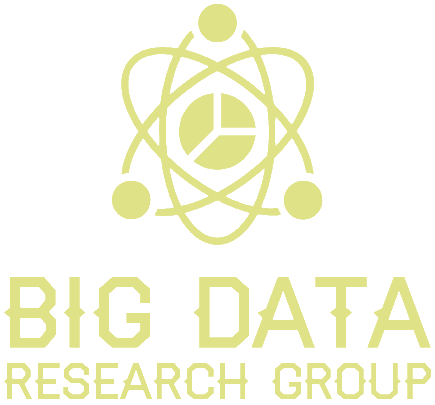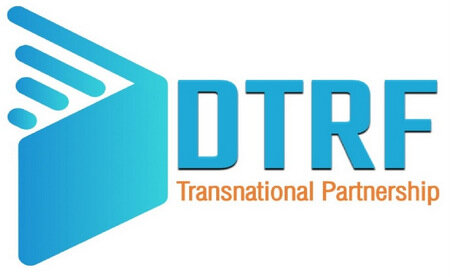
On-going Projects
Violence-inducing Behaviour Prevention in Social-Cyber Space of Local Communities
Funding Agency
This project has received funding from the Research Council of Norway (RCN) as a Researcher Project for Technological Convergence related to Enabling Technologies.
Project Summary
Community resilience has increasingly become a priority for local to national governments. Available tools to support resilience initiatives of the local community services lack the ability to assess and mitigate the dynamic risks associated with the malicious public behaviour online such as spreading hate and misinformation on social media, which can significantly harm official response efforts during disasters in their communities. In SOCYTI project our key objective is to investigate how to improve community resilience primarily using a principled approach of social cybersecurity, by developing methods and tools to timely inform the Norwegian community services for proactive interventions at scale regarding violence-inducing behaviours online, i.e., the risks to societal atmosphere (e.g. violence-inducing behaviours of online hate speech, violence and abuse against women on social media). The project will conduct large-scale analytics on big data sources, taking in account all ethical, social and legal challenges for data management. This approach contrasts to existing approaches of only small-scale human observations, or survey-based analytical approaches.
The project has the potential to impact the everyday lives of citizens, their well-being with huge social impact and also has the potential to contribute to the UN sustainable development goals, namely SDGs 11-16-17.
Transnational Partnership for Excellent Research and Education in Disruptive Technologies for a Resilient Future
Funding Agency
This project has received funding from the Research Council of Norway (RCN) and the Norwegian Agency for International Cooperation and Quality Enhancement in Higher Education (Diku) through INTPART programme.
OptiFruit: Optimizing harvest window evaluation for stone fruit with artificial intelligence - test of machine learning analysis with cherry production in Sogn, Western Norway.
This project received funding from the research funds for agriculture and the food industry (FFL/JA), Norway.
Project Summary
Urban infrastructure systems and their effective and reliable operation ensure delivery of energy, mobility, public security and information, on a daily basis and during unforeseeable situations. Yet with an ever-increasing frequency, industries and communities face emergencies. Hence there is a need to find a new way of thinking about how to plan, design, build and manage cities under more challenging conditions. The DTRF project addresses the need by building and strengthening research and education within disruptive technologies for critical infrastructure resilience. The DTRF research and education network is coordinated by Vestlandsforsking and will run for a term of three years. The collaboration with university partners in Norway, USA, China, India and Japan, will build sustainable relationships by exploiting the experience, resources, research infrastructure, and complementary expertise of the partners. Students will develop a common understanding of knowledge gaps, research methods, technologies and analytics requirements in critical infrastructure resilience, and tie this work into pressing societal information needs. The DTRF allows for efficient exchange of students, researchers and faculty members that will increase the international collaboration between the project partners. Innovative course curriculum, increased interaction and reciprocal mobility contributes with a strong and robust international group that engages and encourages affiliated students to get involved in multidisciplinary research topics. A vivid research and learning environment enhances excellence in research and education, which benefits all project participants. DTRF consortium is not only communicate within the research community but also with other related businesses and public sector organisations with the impact to give the DTRF more visibility.
Teknoløftet Sogn og Fjordane
Funding Agency
This project has received funding from Forskningsrådet, Sogn og Fjordane fylkeskommune and Sparebankstiftinga Sogn og Fjordane
OptiFrukt: Optimalisering av haustevinduage for steinfrukt med kunstig intelligens - test av maskinlæringsanalyse med morelle-produksjon i Sogn
This preliminary project aims to assess the accuracy of machine learning methods in predicting the optimal harvest time for sweet cherries in a region of western Norway. Our approach will involve analyzing data from an optical sorting machine at the fruit and vegetable packing plant in Lærdal, as well as historical weather and microclimatic data. We will also test and evaluate existing research-based models for predicting the ideal harvest window, which has shown promising accuracy in previous studies. If successful, this project has the potential to improve agricultural planning and decision-making for cherry harvesting and reception at the packing station. Furthermore, the forecasting tool developed through this project could be extended to other types of fruits and vegetables, benefiting the entire value chain from farmers to end users. By implementing such a tool, all stakeholders will have better insight into when to expect and handle delicate products, ultimately leading to improved product quality and reduced wastage.
Research-based technology innovation in Sogn og Fjordane (TEKNOLØFT Sogn og Fjordane) aims to strengthen a priority research area at the Western Norway University of Applied Sciences and Vestlandsforsking with increased capacity and expertise on digitization and automation, and make the R&D activities more relevant to the business community in Sogn og Fjordane.
The project goal is to increase the business sector's use of research in development and innovation processes, and stimulate cooperation with new regional, national and international partners. The main initiatives in the project are to facilitate more step-by-step automation with robots in small and medium-sized businesses, and to nurture and develop a strong knowledge platform on Big Data, which enables business to be able to use existing and new data for innovation. The commitment is to add top skills in the R&D areas, and educate new doctoral fellows on business-relevant issues. The project will also develop new postgraduate and further education programs and a new master's degree focusing on robotics and digitization to increase access to relevant and competent labor for the business community in the region. The project will contribute to restructuring and innovation in businesses and one important part of the project is aimed at sharing knowledge, use cases and competence in a collaboration between the R&D activities and business community.
TEKNOLØFT Sogn og Fjordane focuses on a wide range of small and medium-sized businesses in Sogn og Fjordane to maximize the potential for digitization, robotization and automation so that they can meet the challenges of the digital shift. There will be a special focus on cooperation with ICT businesses at the forefront in digitization of production and services, production industries and the energy industry.
Improvement of Preconditions for Decentralisation and Availability of Public Administration in the Territory
Funding Agency
This project has received funding from EEA grants
The project aims at the field of public administration. The goal of the project is to reflect needs of the citizens in the localisation of public services. Population movement is tracked in spatial patterns, which will help to define proper settings of public services and their distribution in the territory. For this purpose a high-quality analysis based on current and valid data is needed. Therefore, a purchase of data from geolocation network of the mobile operators in the form of public procurement comprises an important part of the project.
According to the analysis of daily commuting streams of inhabitants based on the purchased data, various models of the distribution of public services will be elaborated. The objective of the project is to prepare particular proposals and recommendations for the distribution of public administration services and especially the territorial arrangement of authorities for their best coordination, performance and accessibility for citizens based on the aforementioned models.
The implementation of the project is expected to last 4 years and it can be divided into 4 key phases. The first one concentrates on knowledge transfer from the Norwegian Partner Institutions (project partners) and their experience in working with these data. Gained knowledge will be used especially in an elaboration of the methodological document, preparation of the tender documentation and after that on realisation of the public procurement which is the second phase. A Czech expert advisory board (Multidisciplinary platform) will participate in this activity. The third phase is focusing on spatial analysis of daily population movement based on the purchased database. In fourth phase proposals and recommendation of adjustment of territorial structure of
public administration will be assembled as a final output of the project. This way, the overall output of the programme (“Improved responsiveness of public administration to citizens’ needs”) will be reached.
We are external expert in this bilateral cooperation with the Ministry of the Interior (Czech Republic).



